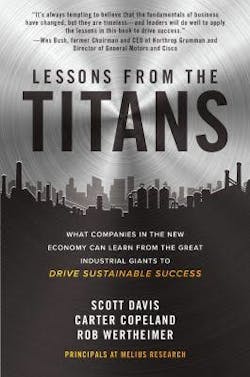Bad Managers Have a Terrible Impact That Lasts Long After They’re Gone
From a hiring perspective, Danaher screens for character traits as much as talent. The company favors humility, as humble people are more likely to adopt the entire cultural concept of continuous improvement. Transparency is also critical to Danaher, as well as team-oriented players. The focus on character traits helps HR increase its hit rate of recruiting excellent prospects, filter talent successfully, and compensate high achievers to remain motivated and drive up retention. To find the traits it favors, Danaher uses an outside consultant to administer a personality test as well as something similar to an IQ test. The consultant is entrusted to give a thumbs-up or -down opinion.
Which begs the question, does Danaher just hire process-driven people with less interest in creativity? The answer on a historical basis is yes. Sometimes art is lost when you focus on process, and you create robots instead of leaders. Danaher is well aware of that shortcoming, and today’s growth playbook tries to find balance. Having creative minds in R&D, for example, is now a higher priority. And DBS growth tools do require a more diverse, right brain–versus–left employee base. But for much of the rest of Danaher, process is too important for them to take the risk of swinging the pendulum too far away from the core process-driven culture.
HR at Danaher works on developing managers and pays just as much attention to the “how and why” as to outward performance. A manager who gets results but fails to develop a successor, for example, will be passed up for promotion. Talent development is mandatory, and a manager who scores poorly on employee engagement is on the way out. Danaher believes that people normally quit because of bad managers, not because of pay. If it sees unusually high turnover or some degradation in employee engagement, the manager is usually the root cause. In fact, Danaher sees high employee turnover as a lagging indicator, so the pressure to catch bad actors early is high. Performance reviews go beyond the core Danaher metrics to cover hard-to-measure aspects such as team building, leadership through DBS, and one’s success in “charting the course.”Danaher is one of the more time-intensive HR organizations we’ve ever seen, all because it believes bad managers have a terrible impact that can last long after they are gone. On the positive side, the efforts and willingness to get rid of bad managers, even those with strong near-term results, will result in building culture. Employees see accountability at the highest levels, and that matters. All that accountability, though, requires time, with lots of on-site visits and discussions with all levels of staff.
Another HR differentiator is onboarding. Danaher’s new hires (above a certain organizational level) go through a two to three- month immersion program during which they are not yet allowed to do their jobs. Instead they visit factories and facilities, sit in meetings unrelated to their role, and learn DBS and its tools. The company fully integrates them into the system without distraction.
This time investment is unique and tells recruits from day one that Danaher is interested in them for the long term. Furthermore, the immersion process itself has a filtering impact. Its intensity leads some to discover that “this company just isn’t for me.” For HR, exiting someone quickly who doesn’t embrace DBS is a victory.
This unusually high investment in HR pays off in developing leaders who deliver exceptional results without the common break- downs in integrity we often see in peers. Danaher is known for factory excellence, but having good people in place, with a strong culture to guide them, is what maintains this excellence over time.

